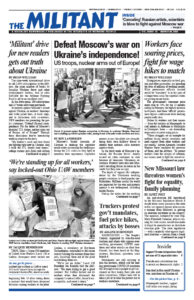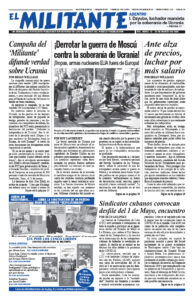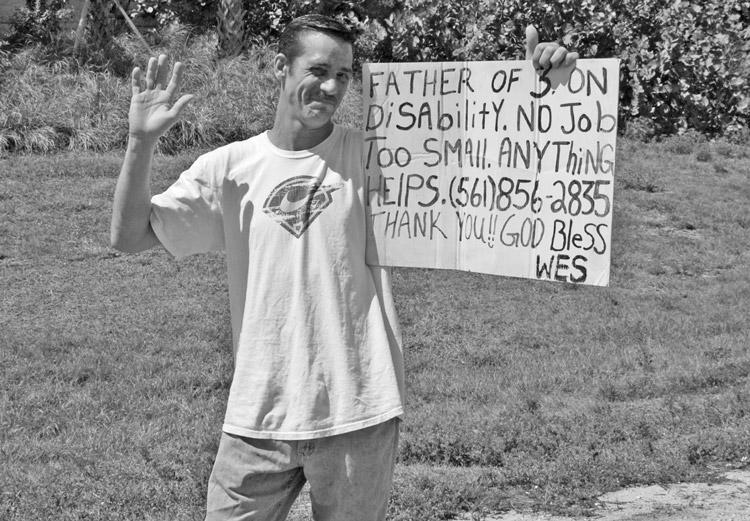In 2015 officials in Palm Beach County, Florida, outlawed so-called panhandling or soliciting on or near any road, claiming it endangered people’s safety. Similar laws that exist across the country are used to turn workers who are homeless into criminals and to give cops and courts another weapon to restrict free speech and political rights that are crucial for all working people.
Since 2020 at least 141 people have been charged there under the statute. Almost all are homeless. A handful were arrested for selling flowers on the roadside.
Clarence Richter owes nearly $3,000 in court costs and has done jail time. His “crime”? He is homeless and stands by the road with a sign asking for help. He’s been arrested eight times.
While the ordinance ostensibly targets those soliciting charitable contributions, it actually bans people from holding any type of sign along public roads. If you hold up a sign promoting a union strike struggle, or one that reads “Defend Ukraine independence!” or hawk the Militant, you can be fined $500 and face a 60-day jail sentence.
Last November Palm Beach County Judge Sherri Collins ruled the law violated free speech and is unconstitutional.
But since Collins’ ruling at least 15 more people have been charged with violating the law. Sabarish Neelakanta, a lawyer for the Florida Justice Institute, says judges often give defendants the choice of pleading guilty and getting out of jail with credit for time served, or challenging the charges and staying in.
The group has filed a lawsuit against the ordinance, seeking a ruling that it violates the First Amendment, and an injunction to stop its enforcement.
In a phone interview with the Militant, Neelakanta explained there are more challenges to anti-soliciting laws since a 2015 U.S. Supreme Court ruling in Reed v. Town of Gilbert, Arizona. The town fined a church for putting up signs advertising upcoming services. The court found Gilbert’s law unconstitutional, ruling the town had failed to show any compelling reason why the law was needed, and therefore violated the First Amendment.
And yet many towns and cities persist in passing laws like this that can be used to silence workers. They do so because the bosses’ assaults on workers’ wages, conditions and unions meet resistance. The employing class looks to their governments to pass laws that put obstacles in the way of working people fighting together for what we need.
For example, the United Mine Workers of America had to fight to keep picket lines up during the ongoing 11-month strike against Warrior Met Coal in Brookwood, Alabama. Last October the company got a restraining order that banned all union activity within 300 yards of the mine’s entrances. In January UMWA District 20 Representative James Blankenship announced that striking miners had won the right to resume picket lines near the mine.
Other strikes, like those at Kellogg’s in Omaha, Nebraska, and John Deere were hit with similar injunctions.
Last month Canada’s government invoked the repressive Emergencies Act against truckers protesting COVID vaccine mandates and other attacks on their living standards. The government launched a brutal assault on protesters, using hundreds of police supported by armored tactical vehicles, elite sharpshooters, horse cavalry, stun grenades, anti-riot weapons launchers, batons and pepper spray.
Anti-soliciting laws are yet another weapon in the rulers’ arsenal to restrict the right to assembly and free speech.
Only through discussion and debate can working people figure out how to defend ourselves, build unions, campaign against the rulers’ wars, push back cop violence and defend women’s rights.
The fight to overturn laws like the Palm Beach County ordinance, which restricts rights we need as well as providing cops with legal cover to victimize workers, deserves the support of working people.


